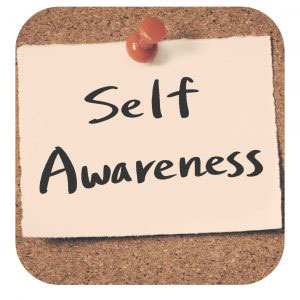Emotional Intelligence is an extremely essential and a mandatory skill to be owned by every human being. And the good news is that it is definitely a learnable one!
The predominant four elements of Emotional Intelligence are:
 Since Coaches work closely with coachees and other clients to help them navigate and deal with difficult emotional situations in their personal and professional lives, it becomes a mandate for a coach to be Emotional intelligence and have a high Emotional Quotient to be more effective as a coach and have Result and focused based Coaching as an outcome.
Since Coaches work closely with coachees and other clients to help them navigate and deal with difficult emotional situations in their personal and professional lives, it becomes a mandate for a coach to be Emotional intelligence and have a high Emotional Quotient to be more effective as a coach and have Result and focused based Coaching as an outcome.
Let us all explore how each element plays a prime role in being an emotionally Intelligent Coach.
Table of Contents
- Introduction
- The Four Elements of Emotional Intelligence
- Self-Awareness
- Self-Regulation
- Motivation
- Empathy
- The Role of Emotional Intelligence in Coaching
- Conclusion
Self Awareness:
 Self-awareness is the foundation of emotional intelligence.
Self-awareness is the foundation of emotional intelligence.
When we possess a deep understanding of ourselves, encompassing both our physical and mental state, including our emotions, reactions, and responses to various situations, as well as their impact on our body and mind, our strengths, weaknesses, and the values that hold significance for us, it empowers us to become more responsible and accountable as coaches. This heightened self-awareness not only fosters a stronger rapport with our clients but also enhances trust and credibility.
Individuals who receive emotional coaching learn to place trust in their own emotions, effectively manage their feelings, and tackle problems with confidence. Such people exhibit traits of high self-esteem, display an aptitude for learning, and cultivate healthier relationships due to their adeptness in interpreting and understanding interpersonal communication cues. It is equally important for coaches to facilitate self-awareness in their clients. Oftentimes, coachees approach coaches with their own perspectives, and through a technique called Perceptual Positioning, coaches can assist them in exploring different viewpoints, thereby raising self-awareness.
This heightened self-awareness equips coaches to provide enhanced support and guidance, enabling their clients to effectively navigate and regulate their emotions. Additional tools such as journaling, locus of control, and the circle of control and influence also play a significant role in cultivating self-awareness. It is crucial to note that awareness serves as the initial step towards embracing change.
Coaching plays a pivotal role in helping coachees identify their needs, even when these needs are not explicitly expressed. By understanding where coachees currently stand and where they aspire to be, coaches can tailor their approach and techniques to better align with their clients’ requirements. Ultimately, this facilitates the coachees’ progress and empowers them to embark on their personal journeys.
Self Regulation:
 It is extremely important to regulate our feelings and emotions and not allow it to interfere in the Coaching relationship. Hence, constantly working on our emotions and our emotional responses is mandatory, so that we are able to help our coachees regulate theirs.
It is extremely important to regulate our feelings and emotions and not allow it to interfere in the Coaching relationship. Hence, constantly working on our emotions and our emotional responses is mandatory, so that we are able to help our coachees regulate theirs.
Only then would it be possible to identify the Coachee’s emotional triggers and to help them understand what they can do when they feel chickened or attacked. Identify their reactions during intense emotional states making them incapable of thinking clearly. It also brings about Flexibility in the Coach’s approach towards the Coachee.
Emotional intelligence helps coachees to adapt under changing circumstances and handle unexpected challenges and not lose their calm under pressure and assist the coachee to make rational decisions.
An Emotionally Intelligent Coach helps the Coachees to identify areas of improvement and work towards Personal Development.
Social Awareness:
 As coaches, it is essential to grasp the significance of rapport, relationship-building, trust, and psychological safety. When we demonstrate openness and transparency about ourselves, trust tends to develop rapidly. Communication skills encompass listening, speaking, observing, and empathizing. Active listening entails being fully attentive to the person speaking, maintaining eye contact, comprehending the message conveyed, and responding appropriately.
As coaches, it is essential to grasp the significance of rapport, relationship-building, trust, and psychological safety. When we demonstrate openness and transparency about ourselves, trust tends to develop rapidly. Communication skills encompass listening, speaking, observing, and empathizing. Active listening entails being fully attentive to the person speaking, maintaining eye contact, comprehending the message conveyed, and responding appropriately.
Through active listening, reflection, and self-awareness, we can distinguish between our own perspectives and those of our coachees. This enables us to adapt and communicate effectively, conveying their intentions in a manner that resonates most effectively with them. By enhancing our emotional intelligence, we gain increased proficiency in engaging with coachees from diverse countries, continents, and cultural backgrounds. We can then understand and appreciate their unique perspectives while communicating in a manner that respects their cultural norms and values.
Empathy:

It is crucial to empathize and understand someone else’s perspective by placing ourselves in their shoes. However, it is important to exercise caution and avoid getting entangled in unnecessary drama or the specific details of the content being discussed. Equally significant is acknowledging the coachee’s emotions or behaviors, even when they may not align with our personal preferences. This requires us to maintain a non-judgmental stance, devoid of any preconceived notions, and foster self-awareness while remaining fully present in the current moment.
Relationship Management:
 Empathetic Coaches can create a safe and supportive environment and space to be able to share their thoughts and feelings, which also enables the coach to understand their needs and objectives which comforts the coachee to experience a supportive, respectful and safe space to be able to share. Emotional Intelligence is a critical element of Effective leadership. By showing high EI, leaders as coaches can inspire and motivate their clients, build strong teams, and lead by example by being role models for the team members.
Empathetic Coaches can create a safe and supportive environment and space to be able to share their thoughts and feelings, which also enables the coach to understand their needs and objectives which comforts the coachee to experience a supportive, respectful and safe space to be able to share. Emotional Intelligence is a critical element of Effective leadership. By showing high EI, leaders as coaches can inspire and motivate their clients, build strong teams, and lead by example by being role models for the team members.
Goal Setting and Motivation:
 A Coach high on Emotional Quotient would be able to motivate the coachee by being able to develop a strong professional relationship with the coachee and help them create substantial action plans and help them work towards their goals and finally accomplish them with a sense of purpose and commitment.
A Coach high on Emotional Quotient would be able to motivate the coachee by being able to develop a strong professional relationship with the coachee and help them create substantial action plans and help them work towards their goals and finally accomplish them with a sense of purpose and commitment.
To conclude, Emotional Intelligence is a Vital Skill for coaches to develop strong relationships with their coachees, communicate effectively, help them manage their personal and professional conflicts by bringing about awareness and thereby adapt to change with more readiness.
Eventually, they become more effective as coaches at helping their coachees to accomplish their goals and reach their full potential by building a relationship based on trust, understanding and support.
Author:
CEO and Founder of Aspen Life Coaching
Internationally Certified Corporate and NLP Master Trainer Mental Health Expert,Counseling Psychologist Emotional Intelligence Coach from EI learning systems U.S. Professional Certified Coach (PCC) from ICF Leadership and Executive Relationship Coach
















